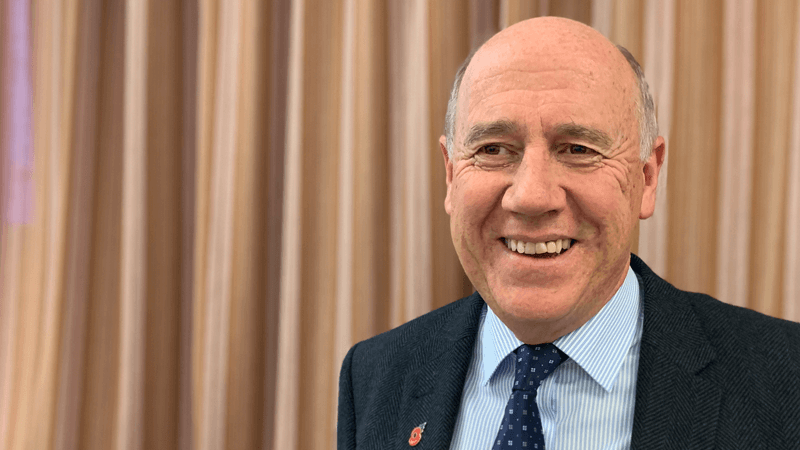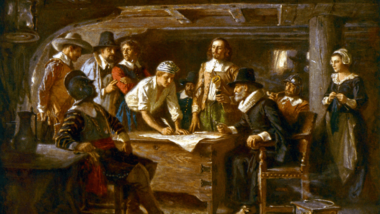The promise and price of religious freedom

When Noah and his family set foot on the earth after the flood that had destroyed everything, one of the first things they did was to praise God.
God then told them he would set a rainbow in the sky to remind generations to come that he would not flood the earth again (Genesis 9:11-15).
But it wasn’t long before Noah was drunk, and lying naked in front of his children (Genesis 9:20-23).
What was the root of the problem?
The same sin found in every human heart. The sin that means every man, woman and child who has ever lived falls short of even their own ideals. The same sin that Jesus dealt with on the cross.
Mayflower ship
In this week’s Autumn Lecture – the second in a series on Independency and Freedom – Ian Cooper drew on the lessons of life in the aftermath of the flood.
Mr Cooper focused in on the occupants of the Mayflower ship as they sought freedom in America.
The pastor of Tollgate Evangelical Church in Redhill showed how after their early hopes and dreams, there was a heavy cost, but they still found their ultimate hope in God.
And he explained that far from the caricature we know today, the Puritan Pilgrims themselves were not dour and one-dimensional. Many were passionate in their love for Jesus Christ.
Trial and challenge
The Pilgrims hoped for religious freedoms under Elizabeth I and James I, but were met with disappointment. After moving to the Netherlands on the hunt for such liberties, they then set their sights on America.
It was on Monday 13 November 1620 that they stepped ashore, after 65 days at sea. On board, the occupants wrote what became known as the Mayflower Compact – a landmark democratic declaration.
A painting of the Mayflower Compact being signed.
Despite arriving on the Saturday, they had waited until the Monday in order to observe the Sabbath.
Sadly – due to their ‘benefactor’ back home placing extra people on board unexpectedly – many of their fellow travellers had little enthusiasm for their biblical dreams.
Within a few months of arrial, as many as 52 had died. The remainder saw years of hardship, conflict and disappointment before the struggling Plymouth colony was overshadowed by other expeditions settling to the north in and around Boston.
The early years of the colony were very hard – they simply were not prepared for living in the challenging conditions of New England.
In 1623, it is recorded that another ship found a “shocking scene” at the camp of the Mayflower explorers. “The colonists’ clothing was ragged. Some were half naked”, one wrote.
Indeed, some who came from England, upon seeing the living conditions, wanted to turn back immediately.
Hope and joy
But the story was not without great hope.
Cooper shared moments that showed how God’s hand was at work.
He said a drought prompted them to call for a time of prayer and fasting. They took time to pause before the Almighty and pray that he would help them. Towards the end of their time of prayer, rain came! It brought not only a revival of their crops but also left the local inhabitants astonished.
Cooper told the remarkable story of Squanto, a man who had been captured by traders, taken to Europe, escaped and then learnt English. Having returned home, he was in a position to save the lives of some of those early Pilgrims by showing them what they needed to do to fish, plant and nurture their crops.
Today’s lesson
In time, others arrived from Europe and the picture changed again including, ironically, a squeezing of religious liberty.
Fast forward many generations, and the United States enjoys widespread religious freedom. Despite their difficulties and failings it owes much to those pioneering Pilgrim Fathers.
Their message, and the message of Noah, still rings true today – that on our own we cannot save ourselves: we need Jesus Christ.

